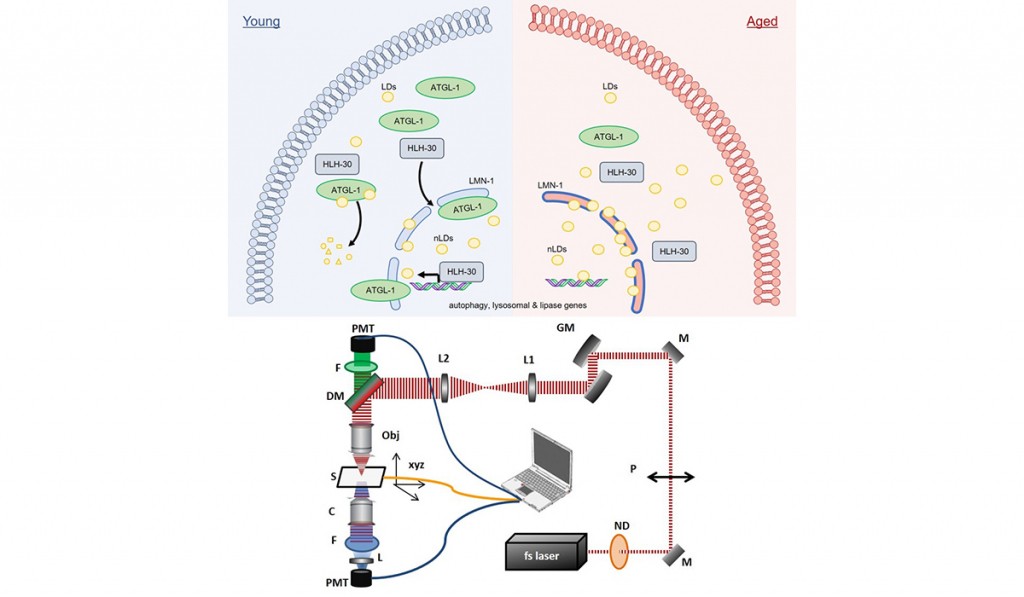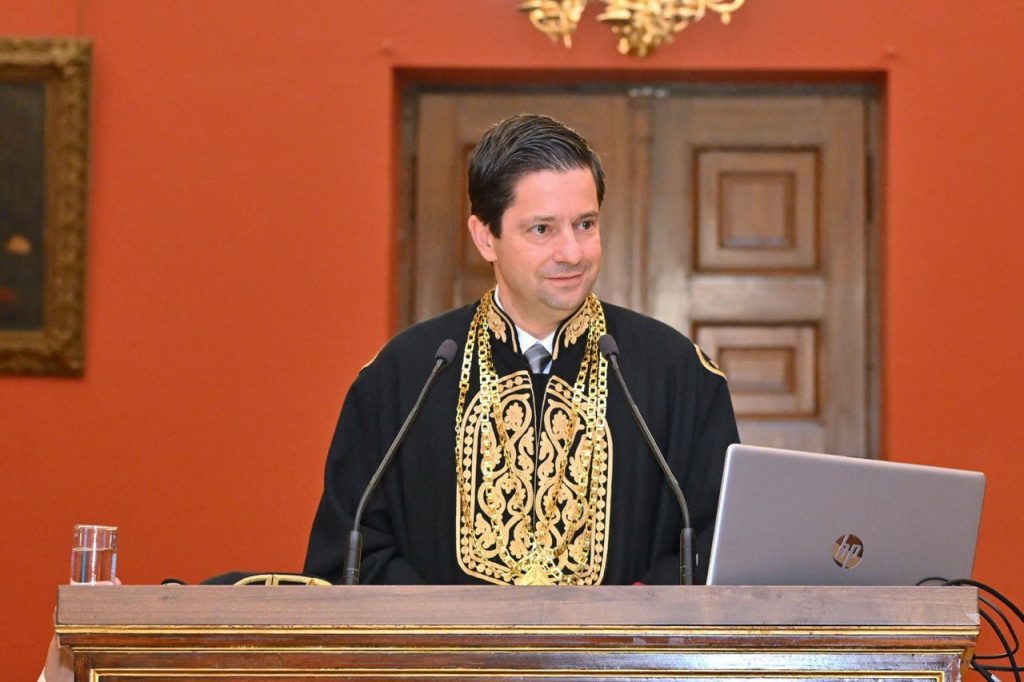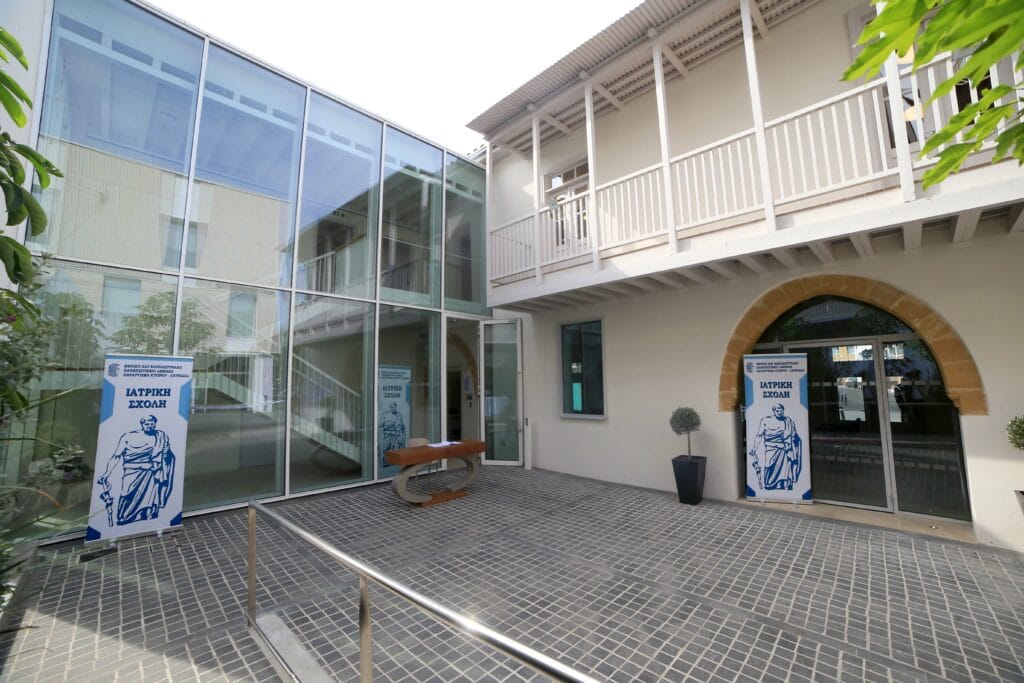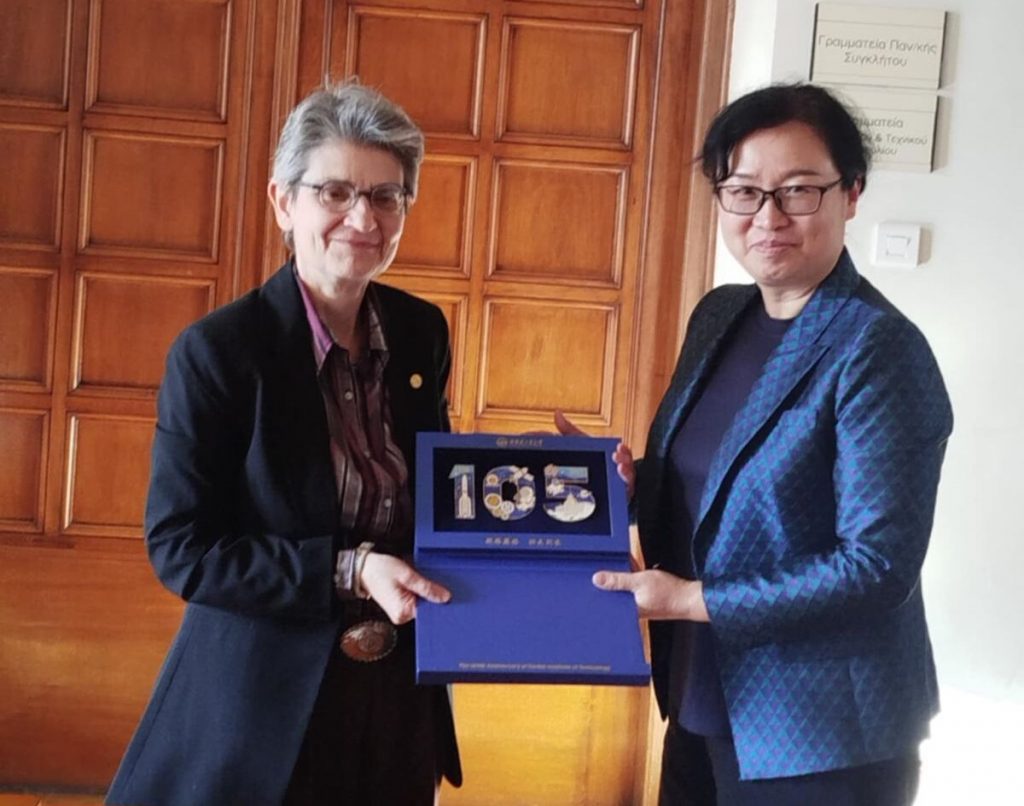Research was carried out at the Institutes of Molecular Biology & Biotechnology (IMBB) and Electronic Structure & Laser (IESL) of the Foundation for Research & Technology-Hellas (FORTH), and at the Medical School of the National & Kapodistrian University of Athens (NKUA)
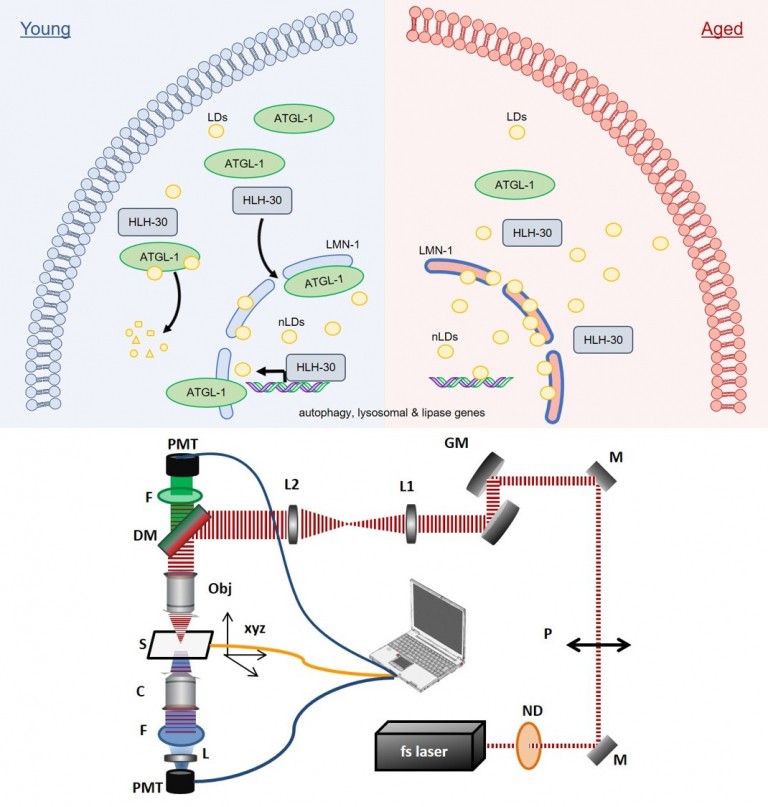
The findings of the interdisciplinary study, published in the premier international scientific journal Aging Cell, uncovera fundamental quality control mechanism that regulates lipid accumulation in the nucleus of the cell. Lipid droplets (LDs), the major form of fat storage in cells, are evolutionarily conserved intracellular structures that provide a pool of energy resources and building blocks for membrane synthesis and maintenance. Lipid droplets are mainly generated from the endoplasmic reticulum (ER) membranes and are localized in the cytoplasm, close to the outer nuclear membrane. However, accumulating evidence demonstrates the presence of LDs inside the cell nucleus. The nucleus is the central organelle of all eukaryotic cells that contains the genetic material (DNA), which determines cell identity and function. Despite recent advances in lipid metabolism research, the cellular mechanisms that mediate nuclear lipid deposition remain elusive.
Dr. Konstantinos Palikaras (NKUA), together with FORTH researchers Dr. Meropi Mari (IESL), Dr. Christina Ploumi (IMBB), Dr. Andrea Princz (ΙΜΒΒ), and Dr. George Filippidis (IESL), headed by Dr. Nektarios Tavernarakis (Professor at the Medical School, University of Crete, and Chairman of the Board at FORTH), implemented state-of-the-art, non-linear imaging methodologies (Multi-Photon Excitation Fluorescence, Second and Third Harmonic Generation microscopy) to visualize LD deposition and distribution in cells of the simple nematode Caenorhabditis elegans. This non-invasive bioimaging technology can provide new insights into fundamental biological phenomena, such as, cell differentiation and function, embryogenesis, and fat metabolism during ageing, or in the context of disease. It offers improved resolution, high-contrast, increased biological sample penetration depth, and is label-free. It also permits the precise quantitative analysis and testing of specific mechanisms and biological processes.
Using this platform, FORTH and NKUA scientists discovered that lipid content progressively accumulates with age in the nuclear envelope of cells, in several tissues. Notably, such a progressive and pronounced accumulation of lipid droplets in the nucleus is a common and conserved feature of ageing and several age-associated pathologies. Importantly, genetic interventions known to delay ageing, such as low insulin signaling and dietary restriction, reduce the number and size of nuclear LDs. This suppression of lipotoxic nuclear lipid accumulation is mediated by the transcription factor HLH-30/TFEB and the triglyceride lipase ATGL-1. These findings highlight the pivotal role of lipid metabolism regulation in restraining the accumulation of LDs in the nucleus, thus preserving nuclear lipid homeostasis and organismal fitness during ageing.
Together, the findings of the study reveal a molecular mechanism regulating lipid metabolism, and highlight its critical role in preventing nuclear LD build-up, during ageing. This mechanism preserves nuclear envelope integrity and promotes nuclear homeostasis; thus, averting age-associated cellular impairment and physiological decline. The tight evolutionary conservation and ubiquitous expression of the regulatory factors involved, indicate that similar pathways may govern ageing and age-related diseases in humans.

For additional information, please contact:
Assist. Prof. Konstantinos Palikaras
Medical School, National and Kapodistrian University of Athens
eMail: palikarask@med.uoa.gr | Tel.: +30 2107462552
Dr. George Filippidis
Senior Staff Scientist, IESL-FORTH
eMail: fillip@iesl.forth.gr | Τel.: +30 2810391320
Prof. Nektarios Tavernarakis
Chairman, FORTH
Director of Research, IMBB-FORTH
Professor, Medical School, University of Crete
eMail: tavernarakis@imbb.forth.gr | Tel.: +30 2810391069
Relevant link:


